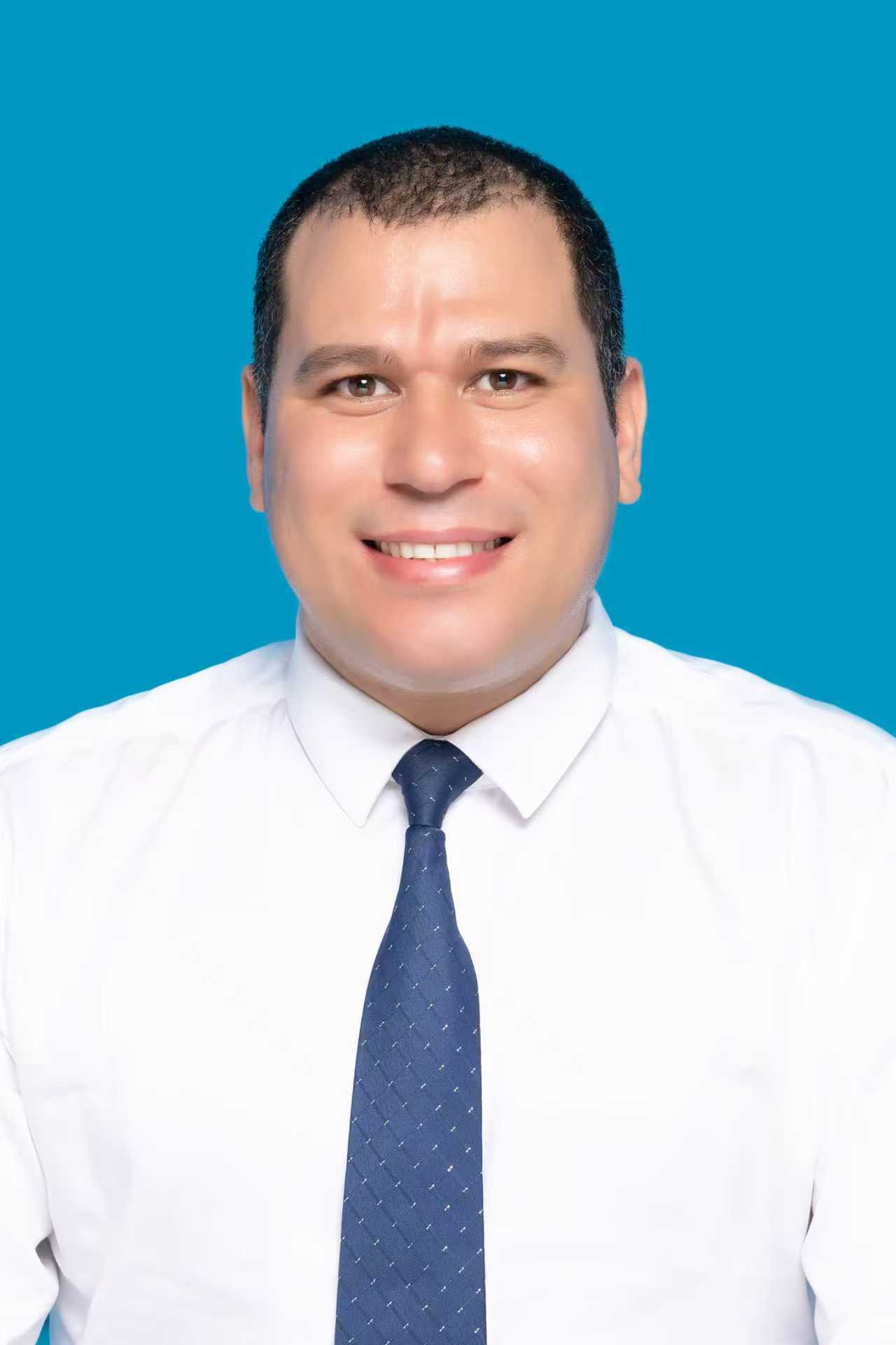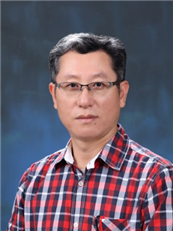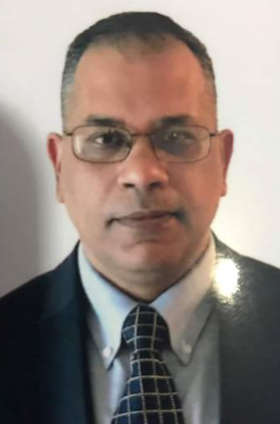
Prof. El-Sayed Salama, School of Public Health, Lanzhou University, China
(Top 2% Scientists Worldwide since 2021)
Biography:
El-Sayed Salama (Top 2% Scientists Worldwide since 2021) is currently a Full Professor at the School of Public Health (PHS) and serves as the Head of the Green Environmental and Energy Laboratory (GEEL) at Lanzhou University (LZU). He was previously engaged as a high-level foreign talent fellow (Category A) at PHS, LZU, from 2018 to 2023. Additionally, he was appointed as a Distinguished Expert of Science and Technology in the Ecological Industry of Gansu Province (China) from 2021 to 2023. He worked as an Assistant Professor and Post-Doctoral Fellow at Hanyang University from 2016to 2018. He was also a Brain Korea (BK21) Fellow during his MSc and PhD studies from 2010 to 2016 at Yonsei and Hanyang Universities (South Korea). He earned his BSc degree in 2008 from the Faculty of Science at Benha University (Egypt).
Prof. Salama and his research team have significantly contributed to the scientific community, with over 150 SCI-indexed publications, 7 patents, 3 books, 4 book chapters, one technology transfer, and 50 invited presentations. He serves as the Principal Investigator on numerous national and international projects. His scholarly work, which has garnered an H-index of 50 and over 7000 citations, has been published in prestigious journals, as first and corresponding author, such as Progress in Energy & Combustion Science (IF=37, Q1), Trends in Plant Science (IF=20.8, Q1), Renewable & Sustainable Energy Reviews (IF=16.3, Q1), Trends in Microbiology (IF=14.9, Q1), Chemical Engineering Journal (IF=13.2, Q1), Resources, Conservation and Recycling (IF=10.9, Q1), Journal of Energy Chemistry (IF=14, Q1), and Water Research (IF=12.4, Q1). He teaches several subjects on Environmental Sciences for undergraduate and graduate students in Various Universities. To date, he has supervised the graduation of 15 students, including 10 PhD candidates and 12 master's students.
Prof. Salama serves as Editor, Associate Editor, and Editorial Board Member for several international journals. He is a member of various Scientific Societies and has roles as General Chair and Session Chair at International Conferences. His research at LZU focuses on “Bioenvironmental Sciences and Bioenergy".

Prof. Byong-Hun Jeon, Hanyang University, South Korea
Biography:
Prof. Byong-Hun Jeon is a Full Professor in the Bioenergy & Environmental Remediation Laboratory (BERL) in the Department of Earth Resources and Environmental Engineering at Hanyang University (HYU), Seoul, South Korea. He received his M.S. and Ph.D. in Environmental Engineering from The Pennsylvania State University, USA. Prof. Jeon is internationally recognized as a Highly Cited Researcher (Clarivate, 2023 & 2024) and consistently listed among the world’s top 2% scientists by Stanford University. His research integrates environmental biotechnology, bioenergy, bioremediation, electrochemical processes, high-throughput omics, and resource recovery, with applications extending to wastewater treatment, biomass engineering, microalgal technology, and sustainable mining. He has published over 610 peer-reviewed articles in leading journals, with an H-index of 95 and more than 33,500 citations, alongside five books/chapters and more than 337 conference proceedings
His contributions include numerous Highly Cited Publications (HCPs) in top-ranked journals such as Renewable and Sustainable Energy Reviews, Water Research, Chemical Engineering Journal, Bioresource Technology, and Coordination Chemistry Reviews. He holds 35 patents, several of which have been successfully transferred to industry, including processes for lithium recovery from batteries, molybdenum separation, microbial electrosynthesis devices, and advanced wastewater treatment technologies
Prof. Jeon has secured and led over 75 funded projects (69 completed, 7 ongoing) from government and industry, with multi-billion KRW support, including flagship projects on sustainable lithium recovery, AI-driven multi-omics for anaerobic digestion, and bio-aviation fuel production
His achievements have been recognized with the Best Hanyang Professor Award, the Minister of Trade, Industry and Energy Award (2022), and multiple Best Researcher Awards from HYU. Beyond research, he has attended and chaired several ACS Meetings & Expositions as Session Convenor and has also served as Chair of the Reviewer Board at the National Research Foundation of Korea (NRF). Since 2018, he has been a member of Korea’s National Examination Board for Professional Engineers in Mining Process. Additionally, he contributes editorially to several peer-reviewed journals, including IJMST and Biotechnology and Applied Biochemistry.
Overall, Prof. Jeon’s career exemplifies a balance of cutting-edge research, impactful patents, global collaborations, and academic leadership, establishing him as a leading figure in environmental engineering and sustainable resource recovery.

Prof. Reda A.I. Abou-Shanab, University of Minnesota, USA
Biography:
Dr. Reda A.I. Abou-Shanab is a professor, consultant, and internationally recognized expert in environmental biotechnology with more than three decades of academic, research, and consulting experience in Egypt, the United States, South Korea, and beyond.
His expertise spans plant-microbe interactions, bioremediation, biofuel production, microalgae, mycorrhizae, biological nitrogen fixation, bio-fermentation technology, and microbiome research. He holds a Ph.D. in Botany–Microbiology from Alexandria University, Egypt (c/o University of Maryland, USA), an M.Sc. in Microbiology from Cairo University (c/o University of Minnesota, USA), and a B.Sc. in Biology from Benha University, Egypt.
Over his career, Dr. Abou-Shanab has held key appointments, including Research Professor at the Genetic Engineering and Biotechnology Research Institute (GEBRI), SRTA-City, Egypt; researcher, class instructor, and teaching specialist at the University of Minnesota; postdoctoral fellow at the University of Georgia, University of Maryland, and Yonsei University, S. Korea; Vice Dean of GEBRI; and Visiting Research Professor at the USDA, Maryland. He also directed the Quality Control Unit of SRTA-City’s Central Laboratory for Scientific Services & Environmental Assessment, overseeing applied environmental monitoring programs.
He has authored over 100 peer-reviewed articles and book chapters, secured eight patents, and delivered invited presentations at numerous national and international conferences. His leadership spans roles as Principal Investigator and Co-PI on both national and international projects, organizing workshops and training programs, and facilitating the translation of technologies into practical applications. As an editor, associate editor, and editorial board member of international journals, and as a reviewer for journals and funding agencies, he actively advances scientific knowledge. He is also a member of several professional organizations.
Dedicated to education and mentorship, Dr. Abou-Shanab has taught undergraduate and graduate courses and has supervised over 20 master’s and Ph.D. students from multiple universities. His exceptional contributions have been recognized with numerous national and international honors from Egypt, Jordan, South Korea, and the USA.
Today, as a research professor and independent consultant, Dr. Abou-Shanab continues to develop innovative strategies that bridge science, industry, and policy, advancing sustainable agriculture, renewable energy, and environmental protection for a cleaner and more resilient future.
Dr. Nandini Thakur, Lanzhou University, China
Dr. Monika Sharma, Lanzhou University, China
